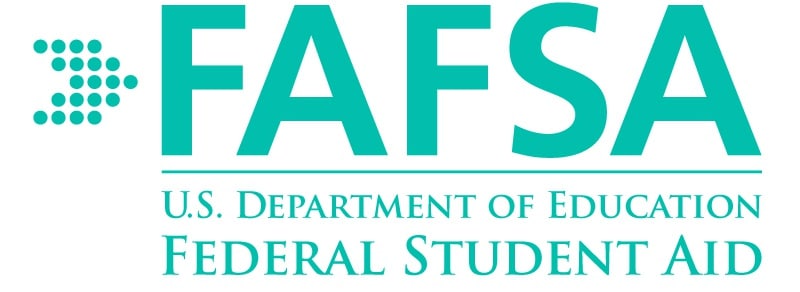In 2014, Germany’s 16 states abolished tuition fees for undergraduate students at all German public universities. This means that currently, both domestic and international undergraduates at public universities in Germany can study for free, with just a small fee to cover administration and other costs per semester.
Hence if you are considering a master’s degree in Germany? fees shouldn’t be a deterrent to your pursuit. Thus, this article will give you a quick guide to the types of master’s degrees in Germany, language requirements, how to apply, and how to get a student visa.
Outline:
- Types of master’s degrees in Germany
- Language requirements if you want to study a Master’s Degree in Germany
- Applying to study for a master’s in Germany
- When to submit your application
- Student visas to study in Germany
Table of contents
Types of Master’s degrees in Germany
Master’s degrees in Germany are usually categorized as either “consecutive” or “non-consecutive.” Those in the first category are designed to build on the academic knowledge gained during a related bachelor’s degree.
Non-consecutive programs tend to focus more on professional development, often requiring applicants to have both an undergraduate degree and some relevant work experience. Most master’s in Germany take four semesters (two years) to complete, though some are shorter or longer.
Language requirements if you want to study Master’s Degree in Germany.
Most courses are taught in German, requiring international applicants to submit proof of proficiency in the language. Two tests are available for this purpose: the Deutsche Sprachprüfung für den Hochschulzugang (DSH, meaning “German language examination for university entrance”) and the TestDaF (formerly Test Deutsch als Fremdsprache, meaning “Test of German as a foreign language”)
The DSH is offered only within Germany, at various universities, while the TestDaF can be taken at centers in more than 90 countries worldwide. As always, check the test you intend to take is accepted by the universities you want to apply to.
While German remains the main language of instruction overall, a growing selection of English-taught programs is available – particularly at master’s level and for students participating in short-term exchange programs.
A searchable database of English-taught courses is provided by the German Academic Exchange Service (DAAD). If you do decide to study in English and it’s not your first language, you’ll need to prove your proficiency with an English language test such as IELTS or TOEFL.
Applying to study a master’s in Germany
To apply for a master’s in Germany, the first word to get to grips with is hochschulzugangsberechtigung (abbreviated to HZB), meaning “higher education entrance qualification”.
An undergraduate degree completed in another country is usually accepted as a suitable HZB for admission to a master’s in Germany, but specific requirements will vary depending on the course, institution and where you’ve previously studied.
For some master’s degrees, applicants are required to have earned a minimum number of credits in specific fields of study. These conditions are set by the department offering the program.
Applications for master’s programs are either submitted directly to the university or via the online portal Uni Assist.
This is a centralized service, which screens applicants and passes on those which meet all the requirements to their chosen institutions, for further assessment.
Not all German universities use this service, and those that do may require applicants to complete their own application process as well.
The specific documents required and each institution will set the application process, but you’ll typically be asked to submit an official copy of your academic qualifications, a passport photo, a copy of your passport, and a copy of language proficiency exam results (if applicable). An application fee may be charged.
When to submit your application
At many German universities, applying for admission twice a year is possible – to commence studies either in the winter or summer semester. The summer semester runs from March to August at Fachhochschulen and April to September at universities; the winter semester is from September to February and October to March, respectively.
In general, applications for winter enrolments must be made by 15 July, and applications for summer enrolments by 15 January. However, application deadlines vary between institutions, and the same institution may set different deadlines for each master’s program – be sure to carefully check the specific dates for your chosen course. It’s recommended to submit applications at least six weeks before the deadline, to ensure time for corrections or additions if any information is missing.
Student visas to study in Germany
Students from countries within the EU, EEA or Switzerland do not need a visa to study in Germany. These students need to register at the nearest registry office on arrival to obtain a residence permit. This also applies to students coming from a number of other countries, including Australia, Israel, Japan, Canada, New Zealand, South Korea, and the US. Students from Andorra, Brazil, El Salvador, Honduras, Monaco, and San Marino can also follow this path as long as they don’t intend to work during their time in Germany.
Students from elsewhere must apply for a visa before arriving in Germany via the nearest German embassy. Those already accepted onto a program can apply for a student visa, while those awaiting confirmation or sitting entrance exams will need an applicant visa.
Visas can take several months to be issued, so apply as early as possible. Visa applicants will be asked to submit a valid passport; confirmation from a German university that an application is in process or completed; health insurance; and proof of adequate funds to cover living expenses.
Get personal grad school advice
Meet admissions directors from leading grad schools worldwide, at a QS World Grad School Tour event in a city near you. You’ll be able to get personal answers to your questions, attend seminars about grad school admissions, and qualify for exclusive scholarships.
We have other great scholarship opportunities that might be of help to your search
- DAAD SCHOLARSHIPS FOR ALL STUDENTS -APPLY NOW
- Middlesex University London Arts and Creative Industries Scholarships in UK
- Ontario Graduate Scholarship Program in Canada
- University of Leicester Centenary Undergraduate Scholarship for International Students in UK
- Commonwealth Shared Scholarship Scheme for Study in UK Universities- APPLY
- Commonwealth Government Scholarships for Masters & Ph.D. At University of Newcastle In Australia
- ONGOING: Pakistan Commonwealth General Scholarship Program
- AIMS Grants Program for US Citizens
- Dalhousie University Master and Ph.D. Scholarship – Canada
- Hrant Dink Foundation Turkey-Armenia Fellowship Scheme
- Top 25 scholarships To Study In Europe(SHARE THIS)
- ICFJ TruthBuzz Fellowships for Media Professionals in USA
We hope this writing provided your scholarship necessities. Please share with your friends and leave your question or response on the comment box for us to serve you better.
DISCLOSURE: This post may contain affiliate links, meaning when you click the links and make a purchase, we receive a commission.






3 comments
Comments are closed.